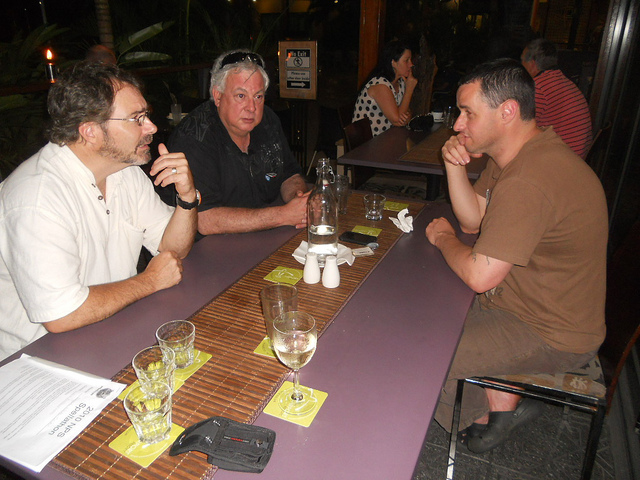blog
Awarded!
At Coaching at Work magazine’s annual conference on 1st July 2015 I was honoured – and delighted – to be awarded Highly Commended (second prize) for Coaching at Work’s award 2015 in the category Best Thought Leadership Article/Series. The award was for my regular reflection column, which shares my reflections on my coaching practice by highlighting issues and themes emerging for me from my coaching. Critically, these articles also explore the learning I’ve gained and the difference this makes to my practice.
You can see the press release here.
Judges’ comments
The award judges’ comments included:
“For her honesty and willingness to share her vulnerability” and “I always relish reading Lindsay’s very open, astute reflections, they really resonate and open a coach’s mind with thought provoking reality. They really make one think, are grounded on experience and are very well received”.
Learning
Readers tell me my articles provoke their own thinking about their practice too, and I hope that any learning that emerges for them will lead to higher quality, more reflective, coaching.
Naturally, some of my learning comes through my supervision sessions with my insightful, wise and skilled supervisor Alison Hodge – so this is a public thank you for your contribution, Alison.
The articles
See more on recent individual articles at:
http://www.lindsaywittenberg.co.uk/clear-the-undergrowth-new-article-in-coaching-at-work/
http://www.lindsaywittenberg.co.uk/power-games-new-article-in-coaching-at-work/
http://www.lindsaywittenberg.co.uk/come-closer-to-the-edge/
and search this site for more of them by entering ‘article’ as a search term at the top right of any page.
Photo by Anders Adermark via Compfight
Highly Commended in Coaching at Work awards
At Coaching at Work magazine's annual conference on 1st July 2015 Lindsay was awarded Highly Commended for Coaching at Work's award 2015 in the category Best Thought Leadership Article/Series.
Read more »The challenge of leadership: what’s needed now?
The recent Sadler Heath event 'What's Needed Now?' - focused on an 'exploration of listening for the right thing to do' - highlighted big themes for me in relation to the role of leadership, responsibility, dialogue, and connection with the system.
Read more »Review of e-book 'Become the Leader You Are'
In this review of the e-book by Lindsay Wittenberg - 'Become the leader You Are' - Dr Carole Pemberton, Visiting Professor at the University of Ulster Business School, comments that it is as valuable for coaches as it is for leaders. She remarks that In this short but impactful book Lindsay shows her passion for leadership and for coaching as a means by which leaders can learn to be more at ease in their leadership of themselves and others.
Read more »Clear the Undergrowth: new article in Coaching at Work
A client who had lost her role as a high-potential in dramatic circumstances may have needed counselling - but her coach realised that even more than this she needed some straightforward, practical career coaching. See Lindsay's article 'Clear the Undergrowth' in Coaching at Work
Read more »Wellbeing: a direct impact on the bottom line
Organisations with high levels of wellbeing retain their people and in many other ways too, profitability, efficiency and effectiveness increase as wellbeing increases. Positivity breeds positivity. A sense of purpose – which gives meaning to an organisation’s work and the work of its employees – is a critical factor in the building and sustaining of wellbeing.
Read more »'Become the Leader You Are': the e-book is published
‘Become the Leader You Are: Self-Leadership through Executive Coaching’ - the e-book written by Lindsay Wittenberg - is now published and available for download.
Read more »Power Games: new article in 'Coaching at Work'
'Power Games' - Lindsay's article in the March/April 2015 issue of 'Coaching at Work' explores the use of power in the coaching relationship - and particularly how some clients hand over their power to their coach. This can provide a useful dimension on how clients use (or fail to use) their power at work.
Read more »Neuroscience of Decision Making and Risk
Our workshop for coaches, consultants, and trainers ‘The Neuroscience of Individual and Group Decision Making and Risk' with neuroscientist Dr Geoff Bird will take place in London on Thurs 30th April 13.30-17.00. Sign up here
Read more »Leading across Cultures
To work effectively with difference, the starting point is to understand and be aware of oneself: behaviours, emotions, interpretations, assumptions, and the impact of assumptions. It means taking a holistic view, being curious, and holding back from making judgments of the worth of this or that person, or from jumping to conclusions. Leaders who are culturally aware create sub-cultures of greater trust, more effective communication, healthier relationships and leadership that releases infinitely more potential.
Read more »











